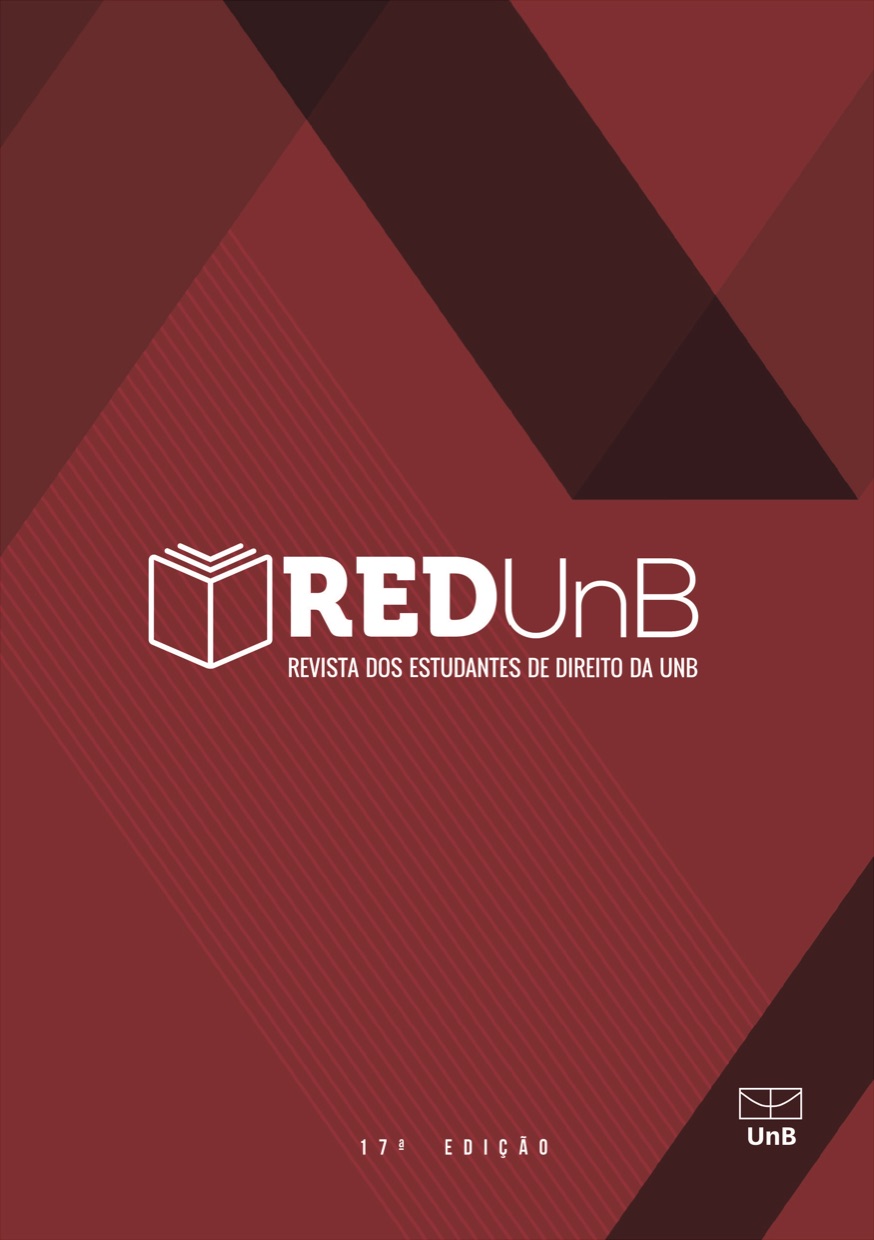ACORDOS PREFERENCIAIS DE COMÉRCIO: CRISE OU OPORTUNIDADE PARA A OMC?
Palavras-chave:
Acordos Preferenciais de Comércio. Acordos Regionais de Comércio. WTO. Sistema Multilateral de Comércio.Resumo
O objetivo deste artigo, com base na análise dos principais pontos de conflito entre APC e a OMC, foi definir se a proliferação dos APC representava uma crise ou uma oportunidade para a OMC. Para responder a essa pergunta, na primeira seção, este artigo analisou os sintomas que indicam que a proliferação dos ACP é uma crise normativa e institucional da OMC. Na perspectiva normativa, a regra do consenso, a estrutura ultrapassada das disciplinas da OMC e a complexificação das regras de origem indicam uma crise da OMC. Além disso, a supervisão defeituosa do mecanismo de transparência, um Secretariado pouco atuante e conflitos de competência são questões relevantes na área institucional. Esta pesquisa nos permitiu concluir que o crescimento dos ACP é origem e consequência de uma crise na OMC. Na segunda seção, este artigo buscou propor alternativas para aproveitar o novo cenário do comércio internacional e aprimorar o sistema multilateral de comércio. Como possíveis soluções, identificamos o fortalecimento da supervisão feita pela OMC dos países com ACP, com um Secretariado com mais prerrogativas, e a multilateralização dos benefícios percebidos pelas partes a ACP, seja ela de facto ou através de uma massa crítica de Membros.
Downloads
Referências
BALDWIN, R., “21th Century Regionalism: Filling the gap between 21th century trade and 20th century rules”, In: World Trade Organi- zation: Economic Research and Statistics Division, Staff working Paper, ERSD-2011-08, May, 2011.
BHAGWATI J., KRUEGER A.,” The Dangerous Drift to Commercial Trade Agreements”, In: United States trade policy: infatuation with free trade agreements, Washington, DC: AEI Press, 1995.
BOLLYKY, TJ., MAVROIDIS, PC., “Trade, Social Preferences and Reg- ulatory Cooperation the New WTO-Think”, In: Journal of Interna- tional Economic Law, 2017, p. 1-30.
BURFISHER, ME et. al., “Regionalism: Old and New, Theory and Practice”, In: International Food Research Institute, February, 2004.
BUSCH, M.L., “Overlapping institutions, forum shopping, and dis- pute settlement in international trade”; In: International Organiza- tion, v. 61, n. 4, p. 735-761, 2007.
CARREAU D., JUILLARD P., Droit International Economique, Paris: Dalloz, 2004.
CHASE et.al., “Mapping of dispute settlement mechanisms in re- gional trade agreements ”“ innovative or variations on a theme?”, In: ACHARYA, R, Regional Trade Agreements and the Multilateral Trad- ing System, Cambridge University Press, 2016.
CONCONI, P., Do Rules of Origin Hurt Third Countries, Geneva: WTO Trade Dialogues Series, 2018.
COTTIER, T.; FOLTEA, M., “Constitutional Functions of the WTO and RTAs”, In: L. Bartels, F. Ortino, Regional trade agreements and the WTO legal system, Oxford University Press, 2006.
DAM K., “Regional Economic Arrangements and the GATT, the Legacy and Misconception”, In: The University of Chicago Law Review, 1963.
DAVEY, WJ, “Dispute Settlement in the WTO and RTAs”, In: L. Bar- tels, F. Ortino, Regional trade agreements and the WTO legal system, Oxford University Press, 2006.
VAN DEN BOSSCHE, Peter. The law and policy of the World Trade Organization: text, cases and materials. Cambridge University Press, 2008.
DUBIN, L. Dubin, RUNAVOT, MC, “The crisis of international or- ganizations”, Droit des organisations internationales, (ss la dir.) E. Lagrange and JM Sorel, Paris: LGDJ, 2013.
ELSIG, M., “Can we get a little help from the Secretariat and the Crit- ical Mass”, In: Redesigning the World Trade Organization for the twen- ty-first century, 2009, p. 67-90.
ELSIG, M., Agency Theory and the WTO: Complex Agency and Missing Delegation, Paper Manuscript, 2008.
FABRI H.R., “The WTO, an organization in crisis?.”, In: Annuaire français de relations internationales, Paris: 2001, p. 943-951.
HOEKMAN, B.; KOSTECKI, M., The Political Economy of the World Trading System - From GATT to WTO, Oxford: Oxford University Press, 1995.
HORN H., MAVROIDIS PC, SAPIR A., “Beyond the WTO? An anato- my of EU and US preferential trade agreements”, In: The World Econ- omy, c. 33, 2010, p. 1565-1588.]
HOUFBAUER G., BHAGWATI J., Are RTAs stepping stones or obstacles to the trading system?, World Trade Organization e-Debates, 2007.
HOWSE, R., REGAN, D., “The product / process distinction-an illuso- ry basis for disciplining unilateralism in trade policy”, In: European Journal of International Law, 2000, p. 249-289.
KWAK, K., MARCEAU, G, “Overlaps and Conflicts of Jurisdiction between the WTO and RTAs”, In: L. Bartels, F. Ortino, Region- al trade agreements and the WTO legal system, Oxford University Press, 2006.
KRISHNA, P., et.al, The WTO and Preferential Trade Agreements: From Co-Existence to Coherence, Geneva: World Trade Organiza- tion, 2011.
MARCEAU G.; REIMAN C., When and How Is a RTA Compatible with the WTO, Legal Issues of Economic Integration, 2001.
MATSUSHITA, M. et. al., The World Trade Organization: law, practice and policy, 3rd ed., Oxford University Press, 2015.
MATTHIES J., “EC Rules of Origin from an Official’s Point of View”, In: Rules of Origin in International Trade: A Comparative Study, 1992, pp. 419-432.
RIVAS, JA, “Do rules of origin in FTAs comply with article XXIV GATT”, In: L. Bartels, F. Ortino, Regional trade agreements and the WTO legal system, Oxford University Press, 2006.
SCHIMNI, BS, “Third world approaches to international law: a mani- festo”, In: International Community Law Review, c. 8, 2006.
SOREL, JM, “Accords commerciaux et régionalisation des échanges”, In: La régionalisation de l’économie mondiale, 2007.
SUTHERLAND, P. et. al., The Future of the WTO: Addressing Institu- tional Challenges in the New Millenium, Geneva: OMC, 2004.
THORTENSEN, V et. al., “Acordos preferenciais de comércio: da mul- tiplicação de novas regras aos mega acordos comerciais”, São Palo: FGV, 2014.
WARWICK COMMISSION, “The Multilateral Trade Regime, Which Way Forward”, Coventry: University of Warwick, 2007.
WINHAM G., International Trade and the Tokyo Round Negotiation, Princeton: Princeton University Press, 1986.


